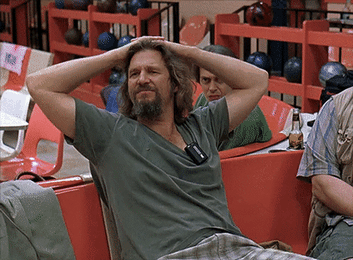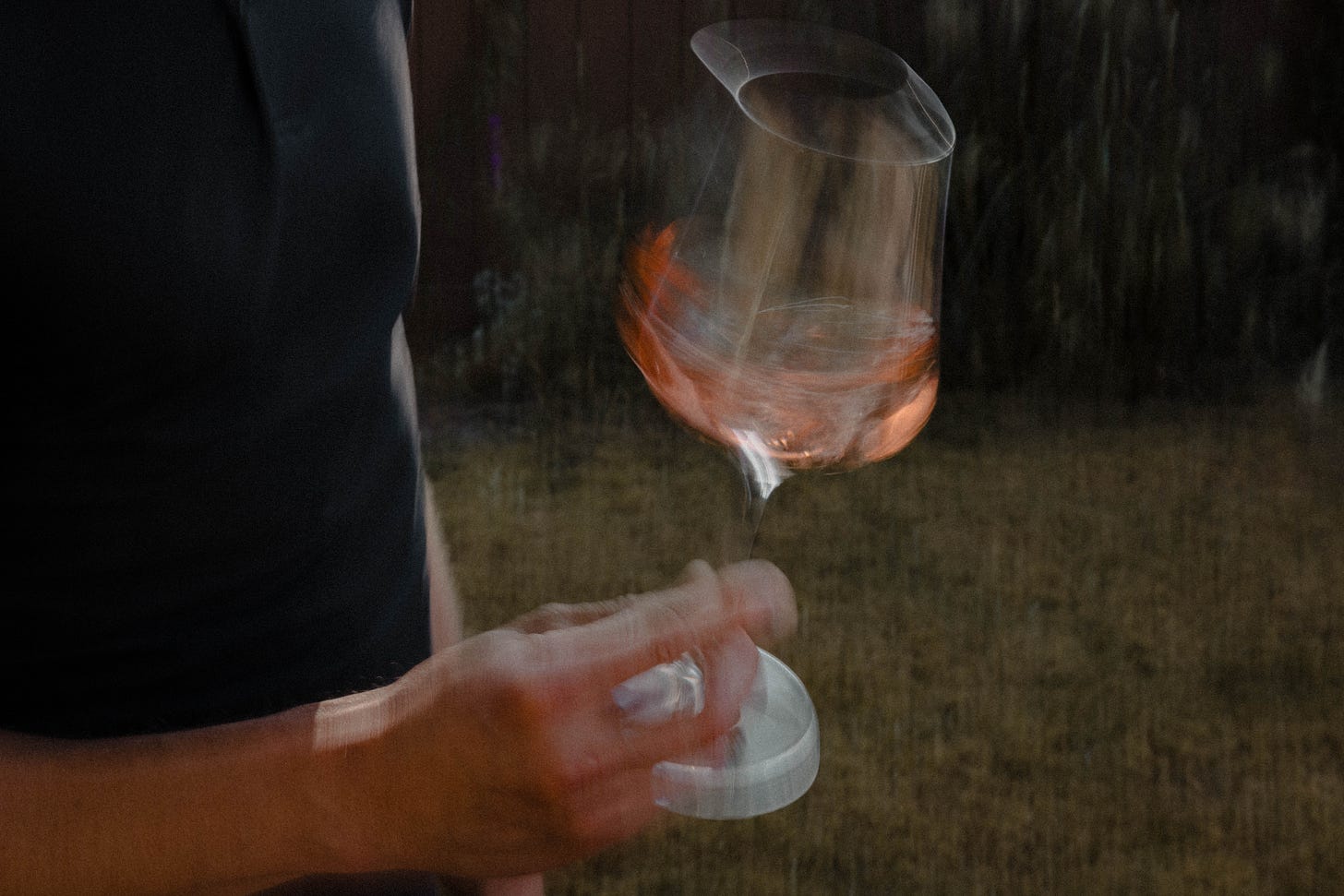I'm Still Salty About This
That Time an Influencer Asked to Collaborate Without Following My Client (and A Random Guy Got Mad at Me About My Response)
Let’s Talk About Community (Again, lol)
Last year, I apparently struck a nerve amongst some people with the apparently bold statement that if an influencer reaches out to my clients for a partnership and they (the influencer) aren't following them (the winery), then I will ignore their (the influencer’s) request.
I had no idea this would be such a hot take and that I would then spend my Saturday morning getting into a heated debate on Threads with a photographer about my own personal criteria for which influencers/creators/educators my clients work with.

In spite of it all, though, I stand by what I said. If a person can't be bothered to take two seconds to follow my clients, it tells me that they don't actually want to be a part of our community, and I don't have time for that.
I got into this industry because I saw how collaborative and community-driven it was. As wineries, we are nothing without our people: our employees, friends, neighbors, peers, and customers.
And on social media, our success is much more obviously determined by the strength of that community.
So this article is directed at influencers and what I’m looking for when they reach out to my clients for partnerships. (Pssst… Wineries, you can learn something here, too; this is a framework you can use to evaluate every pitch you receive.)

What I’m Looking for in Influencers Who Want to Work with My Clients
You Follow Us.
This is the absolute bare minimum. If you’re not already following the winery on the platform you are reaching out to them on, it suggests that you’re not interested in being a part of our community and that we’re just another brand on a spreadsheet to you.
You’re not entitled to someone’s product or time just because you have an audience. If you want to work with a winery, the first step is to show up in their world and show them that you have a genuine interest in what they have to offer.
You’ve Engaged with Their Content Before Reaching Out.
Likes are fine. Comments are better. Sharing a post or story and tagging them before you even pitch is *chef’s kiss!*
Again, creators who genuinely want to partner with a winery should already be engaging with their content because they’re actually interested in what that winery is doing. If your pitch reads like it could be sent to any beverage brand, I’m going to assume it was.
You Know Who They Are and What They Stand For.
I can’t tell you how many pitches I see that say something like “Would love to collaborate; I think our brands are really aligned!” without a single specific example of what that means.
If you’re pitching a winery, you should be able to answer these basic questions:
What kind of wines do they make?
What makes them different from other wineries?
What are their values and voice?
Why do you, specifically, want to partner with them, specifically?
You Propose a Partnership That Brings Value Beyond Visibility.
Saying “I’ll post a story and tag you” is not a compelling pitch. What else are you bringing to the table?
Are you offering content we can reuse? Are you going to write a thoughtful post or review that connects your audience to our values? Will you be driving traffic to our tasting room or website? Do you have ideas on how this could be a long-term partnership (and not just a pitch to get a free tasting while you’re in town and then we will never see and hear from you again—yes this has happened to me before and is exactly why I gatekeep my clients resources so fiercly)?
The more clear and specific you can be about the value you’re offering and how that value aligns with the winery’s goals, the more seriously I’ll take you.
You Have Demonstrated Good Partnerships in the Past.
I’m not just looking at your follower count (in fact, follower count is one of the things I focus on last—see last week’s rant on why follower count doesn’t really tell me much about an account). I’m looking at how you’ve shown up for other brands.
Have you shared content that feels thoughtful, genuine, and on-brand for both you and the winery you partnered with? Or does the content that you posted for those other brands feel like anyone could have written it?
Good partnerships leave a paper trail.
If your past collaborations look like copy-paste captions and single-frame shoutouts with no follow-through, I’m going to assume that’s what we can expect from you, too.
But if you’ve built actual relationships, produced content you’re proud of, and helped move the needle for small brands in the past? That goes a looong way.
**Note for those who are just getting started: We all begin somewhere! Focus on showing up consistently, creating honest and thoughtful content, and being a good community member (read: responding to all of your comments and engaging with the brands you want to work with). You don’t need a huge portfolio or follower count to make an impact, but you do need to show that you understand what makes a good partnership, and that you’re in this for more than just free wine.
So, if you're an influencer reading this:
Follow the winery. Get to know them. Engage. Show me you’re excited about them and their wine. And THEN pitch thoughtfully, respectfully, and clearly. I have no problem with people wanting to shoot their shot for a free tasting or whatever, but the wineries I work with are very small and have limited time and resources, so I need to be discerning about who we say yes to, and I am more likely to say yes to the people who put in the effort.
If you’re a winery, remember:
You don’t have to say yes to everyone who slides into your DMs. You get to set the bar. You get to protect your brand and your bandwidth. And you absolutely get to say no to anyone who doesn’t feel like a good fit.
AND if you do find someone whose work you admire, whose audience overlaps with yours, and who shows up with care and consistency, PAY THEM.
Creator partnerships should be mutually beneficial. And just like you wouldn’t give away a case of your wine to every customer who says they “have a lot of friends,” content creators shouldn’t be expected to work for exposure or free product alone. Their photography, writing, video editing, and audience-building take real time and skill, and that deserves compensation.
Community is built on mutual respect.
If you’ve been nodding along while reading this, and you find value in the conversations we’re having here, consider becoming a paid subscriber. It helps support my snacking while I write these here posts.
And if now’s not the time financially, that’s cool! Sharing The Wine Marketing Field Guide with a friend who might enjoy it is another amazing (and free!) way to support this work. We’re big fans of word of mouth around here.


